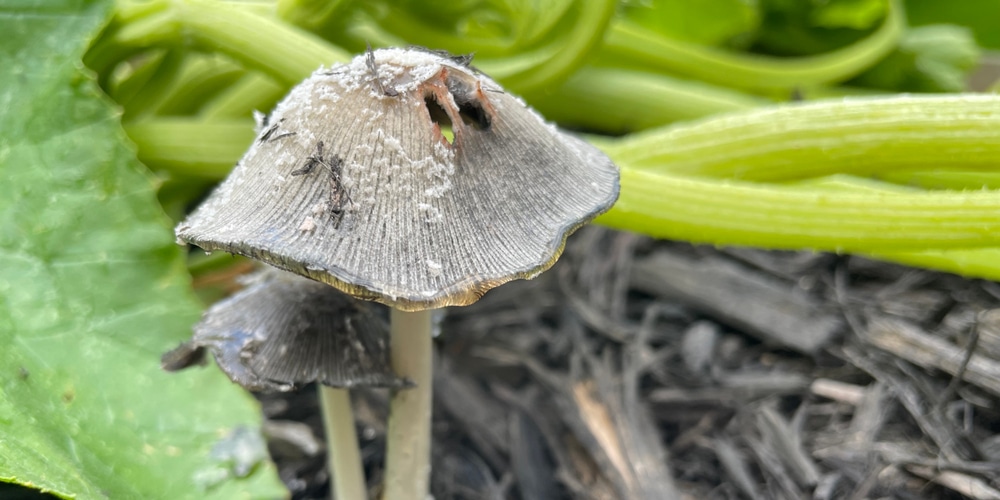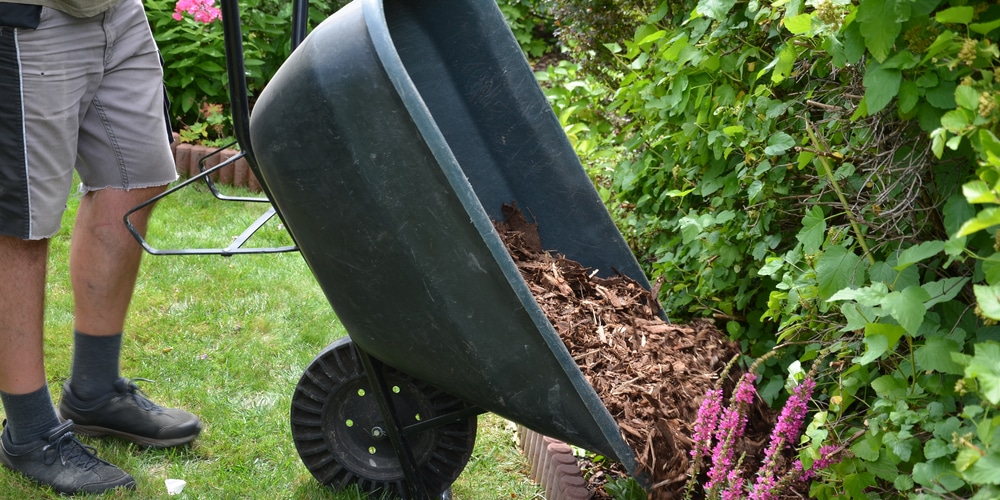Many mushrooms that thrive in mulch are poisonous, that is why you must not eat them. In this article, you will learn some ways to prevent mushrooms growing in mulch. We’ll also look at why mushrooms usually grow in that area.
Mushrooms Growing In Mulch
Mulch is composed of rich decaying materials that make it the best place for mushrooms to thrive. The most common substances that are being utilized in mulch are pine straw, peat moss, bark and wood chips, and hay. All of these decaying matters will develop an acidic substrate that fungi would like. As an outcome, you will see mushrooms in your mulch areas even if you regularly refresh them.
How to Stop Mushrooms Growing In Mulch?
Getting rid of removing mushrooms in mulch can be a time-consuming and difficult task, so it is necessary to know which of the method works effectively. These are some of the best ways that you can do to remove or slay mushrooms in mulch.
Baking soda
The first step in combating mushrooms is to increase the pH level of your mulch as many of them flourish in acidic soils. The simplest way to increase pH level is by mixing one tablespoon of baking soda in 1 gallon of water and after mixing, spraying it over to the infected areas. Baking soda is a natural fungicide that will increase the alkaline level in the soil to effectively kill mushrooms in as fast as 3 days.
Fungicides
Using fungicides seems like the best way to remove mushrooms but the reality is these fungicides do not kill mushrooms. Instead, you can apply fungicides to avoid mushrooms from growing in much as they won’t work well once they take root. As a homeowner, most brands of fungicide that you can buy are used to avoid a fungal outbreak or to control mildew and mold. Commercial versions like azoxystrobin and flutolanil work best to control infection but they should be applied by professionals only.
Vinegar
One of the common household items that work best in killing mushrooms is by using vinegar. Vinegar contains acetic acid that can kill mycelia, spores, and bring damage to the mushrooms. You can simply make a useful anti-fungal spray by mixing one part of white vinegar and four parts of water, then apply this mixture to the mushrooms-infested mulch.
Soap and water
Dish soap is one household item that is perfect for you to kill fungus. Like baking soda and vinegar, soap with water is also safe to blend in a solution that can be used outdoors and indoors. This can also be applied if you have some mushrooms in your flower beds. To apply this, just blend 2 tablespoons of dish soap per three gallons of water, directly spray it to the infected mushrooms.
Lime
Lime doesn’t kill mushrooms directly but like baking soda, it also increases pH level in the soil and it slows down the growth of mushrooms. Lime can be hazardous to anyone even if you are using non-caustic lime. That’s why you need to wear goggles, gloves, and a facemask to prevent having any injuries.
Nitrogen rich fertilisers
Fertilizers prevent fungus growth in the mulch and they also promote plant growth at the same time. By using nitrogen-rich fertilizers, they help in increasing the time it takes to decompose organic materials by decaying the food source of the mushrooms and forcing them to decompose and grow faster. Even if they don’t kill mushrooms, using fertilizer is the best way to avoid an outbreak. For best and faster results, avoid using slow-release fertilizers as the effect won’t be the same.
Mushrooms Growing In Mulch: Prevention
Prevention is usually the most effective way of preventing fungus to grow in mulch. Follow these 8 methods to make your mulch uninviting for mushrooms.
Keep your yard clean
To maintain your yard clean, pick up any fallen fruits, branches, leaves, and animal droppings that may have dropped in your mulch as these would contain fungal spores that can lead to mushroom infestations. These fallen materials will also contribute to substrate acidity that will create a warmer and welcoming environment for the fungi. If you want to avoid mushrooms from growing on your lawn, always keep your yard clean.
Rake your mulch regularly
Use a rake for you to fluff up the mulch every week or as needed. Through this method, you are making sure that the mulch is aerated, won’t conserve too much moisture, and will also break up any mycelia that might start to form underneath. It takes several weeks before you will see actual mushrooms popping up in the mulch and by then, you will have an extended network of roots that makes it difficult for you to manage.
Remove the mushrooms
By using gloves, remove and pick up those mushrooms that are thriving in your mulch. It’s significant to do this process while mushrooms are still young or as early as you recognize them in mulch. If you wait for too long, they will begin releasing spores that blow in the wind and dissipate to other garden areas. After removing, throw them directly in a garbage container or put them in your compost pit and leave for how many weeks or at least 6 months for them to decompose.
Eliminate mushroom infested mulch
Removing severe mushroom infestation in the mulch is the right choice. You can use a shovel tool to scoop up the top of the mulch and rake the bottom so that the mycelium that grows underneath will stop growing.
Add new mulch regularly
It will take 7 years for the mulch layer to fully deteriorate. Depending on how the time or how long you have the mulch, you will want to top it up with a new or fresh one. You must keep the mulch layer around 2 to 3 inches thick as this is enough to stop all the weeds from thriving without smothering the plants.
Trim trees and shrubs
Mushrooms like to thrive in the shade, so this is significant protection if you have mulch around the shrubs and trees. Use pruning shears or lovers for you to trim thin branches that can grow at the bottom or ground of your plants and utilize hand saws for thicker branches. In this way, you can make sure that the mulch has enough time to dry in between watering which prevents it from fitting too damp.
Mushrooms Growing In Mulch: Conclusion
Mushrooms growing in mulch can be unsightly and even dangerous. These types of mushroom are toxic, so you should get rid of them, especially if you have children or pets.


